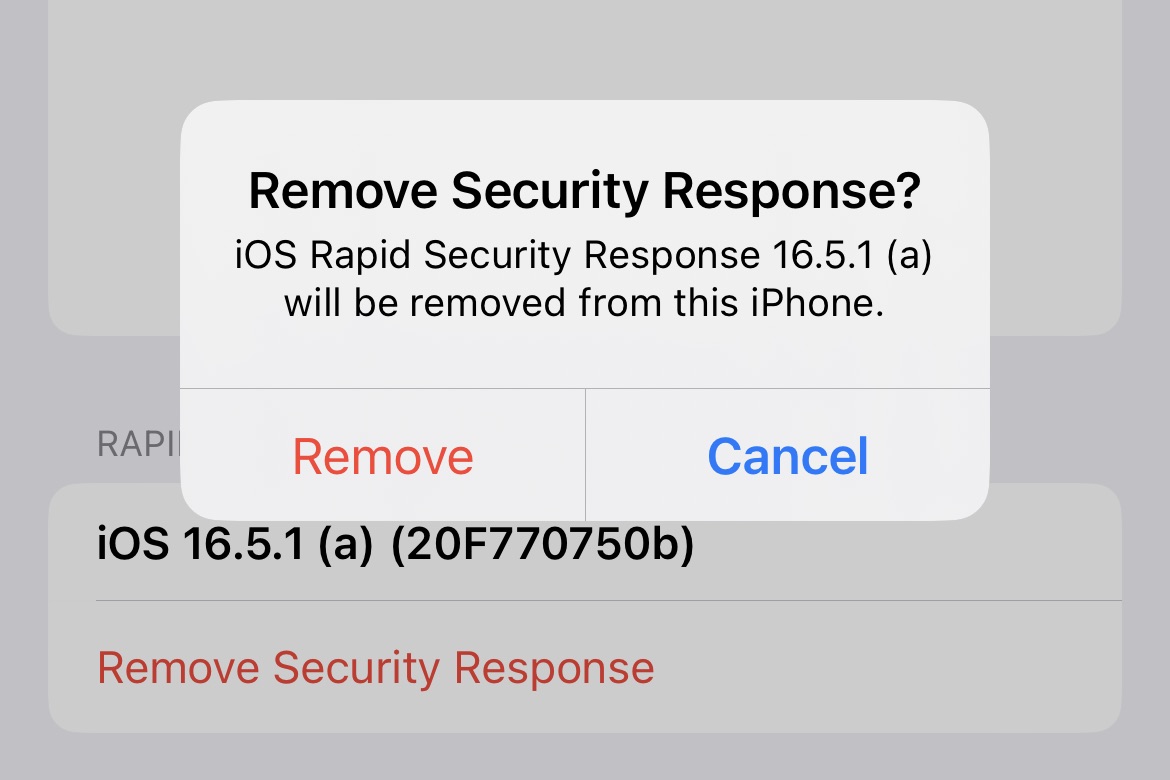apple
Yesterday, Apple published a new update for Rapid Security Response for iOS 16, iPadOS 16, and macOS Ventura to exploit another WebKit bug. But soon after the launch, users started having problems accessing certain websites, and it seems that Apple has pulled the update to fix the problem.
According to MacRumorsAffected sites include Facebook, Instagram, WhatsApp, and Zoom, which started showing unsupported warning messages following the update.
Fortunately for whoever installed it, the Rapid Security Response update can be uninstalled as quickly as it was installed; on iOS, go to the About page in the Settings app, tap on your iOS version, then tap “Remove Security Responses.”

Uninstalling Quick Security Updates on an iPhone running iOS 16.5.1.
Andrew Cunningham
The advantage of Rapid Security Response updates is that they are small in size and quick to install. The updates Apple has released so far have required a reboot on my device, but the downtime was much less than when it updated software. This is because Apple has kept most of Safari and WebKit out of the mainstream Signed Volume (SSV)a read-only volume of many system files that had to be installed separately, patched, and reprinted each time multiple updates were installed.
The downside of Rapid Security Response updates is that they can’t be tested as well as other updates; Apple is right now fifth developer betas of iOS 16.6 and macOS 13.5, and all updates have been in testing since mid-May. Although you may need to install it quickly because the bugs it cuts are difficult, sometimes you can run into problems.

After rebooting, the OS will notify you that the update has been removed.
Andrew Cunningham
WebKit vulnerabilities in iOS are particularly problematic because any app that wants to create web content needs to use the web interface supported by Safari’s built-in WebKit engine. This includes third-party browsers such as Google Chrome, Mozilla Firefox, and Microsoft Edge, respectively they cannot use their native iOS or iPadOS engines as possible on macOS, Windows, or other platforms. Apple has maintained that this will prevent it increases the security of the platform.
Apple announced the Rapid Security Response feature as part of iOS 16 and MacOS Ventura last June but did not start using the feature publicly. until a few months ago. When contacted for comment, an Apple spokesperson referred us this supporting documentwhich says the latest iOS/iPadOS 16.5.1 (b) and macOS 13.4.1 (b) Latest Security Updates will be available to fix this issue soon.